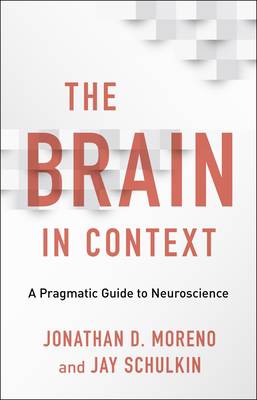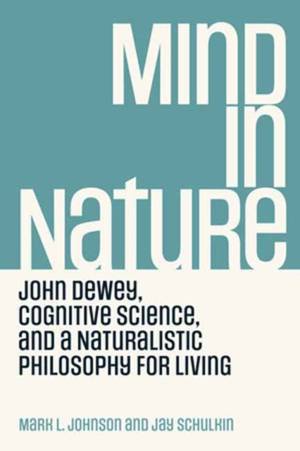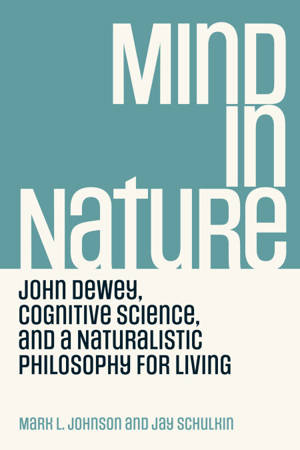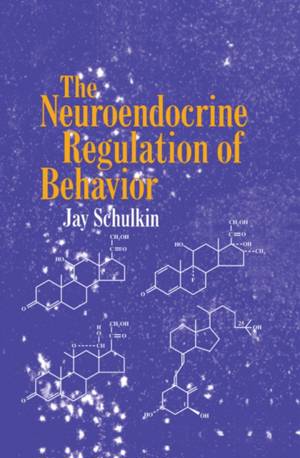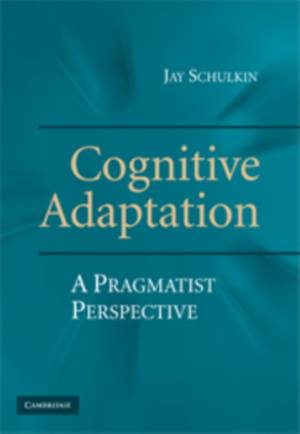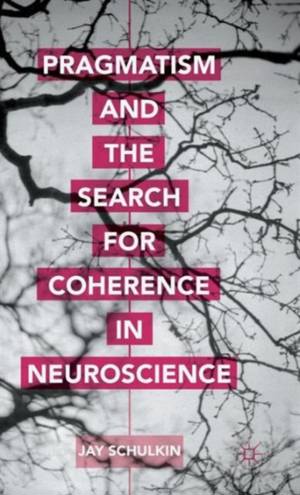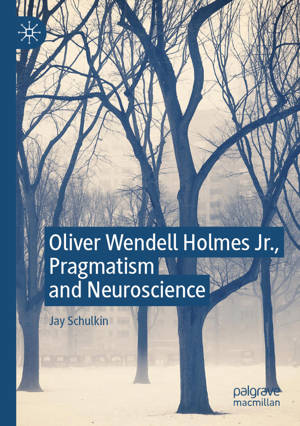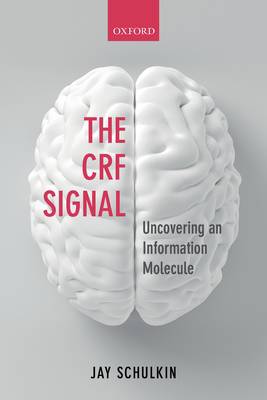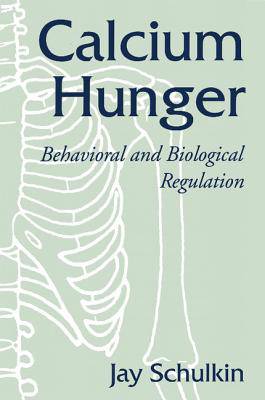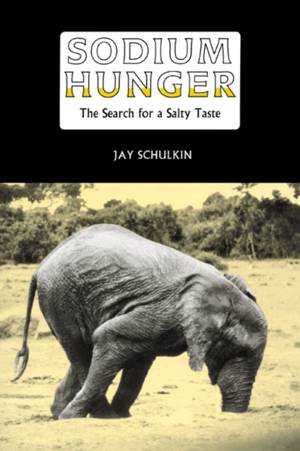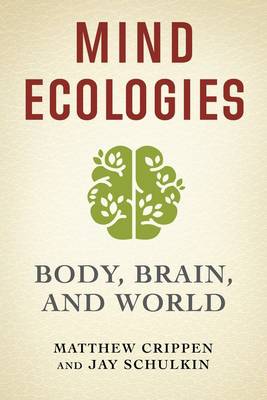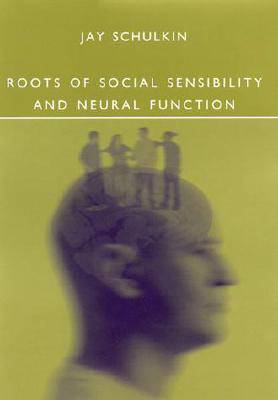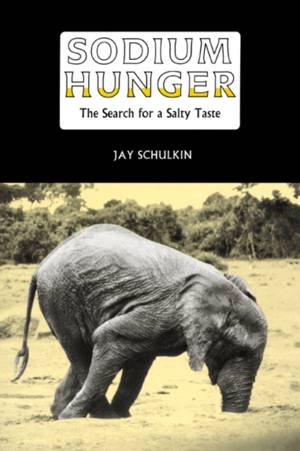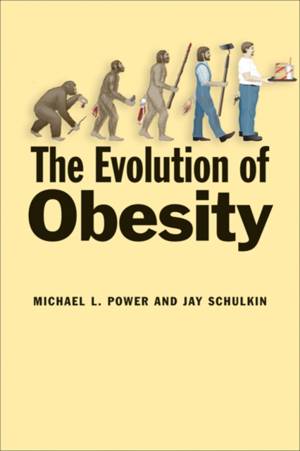
- Retrait gratuit dans votre magasin Club
- 7.000.000 titres dans notre catalogue
- Payer en toute sécurité
- Toujours un magasin près de chez vous
- Retrait gratuit dans votre magasin Club
- 7.000.0000 titres dans notre catalogue
- Payer en toute sécurité
- Toujours un magasin près de chez vous
Livres écrits par Jay Schulkin
-
The Brain in Context
Jonathan D Moreno, Jay Schulkin
- Livre relié | Anglais
- The human brain is the most complex object in the known universe. The field of neuroscience has made remarkable strides in recent years in understandi... Savoir plus
50,95 €Livraison 2 à 3 semaines50,95 €Livraison 2 à 3 semaines -
Bodily Sensibility
Jay Schulkin
- Livre relié | Anglais | Affective Science
- Although we usually identify our abilities to reason, to adapt to situations, and to solve problems with the mind, recent research has shown that we s... Savoir plus
186,95 €Livraison 2 à 3 semaines186,95 €Livraison 2 à 3 semaines -
Mind in Nature
Mark L Johnson, Jay Schulkin
- Livre broché | Anglais
- A dialogue between contemporary neuroscience and John Dewey's seminal philosophical work Experience and Nature, exploring how the bodily roots of huma... Savoir plus
101,95 €Livraison 2 à 3 semaines101,95 €Livraison 2 à 3 semaines -
Mind in Nature
Mark L. Johnson, Jay Schulkin
- Ebook | Anglais
- A dialogue between contemporary neuroscience and John Dewey’s seminal philosophical work Experience and Nature, exploring how the bodily roots of huma... Savoir plus
59,14 €Disponible immédiatement59,14 €Disponible immédiatement -
The Delicate Balance
Jay Schulkin
- Livre relié
- This text considers decision-making and its legitimation in our social world against the background of an evolving sensibility about nature. It should... Savoir plus
100,95 €Livraison 1 à 2 semaines100,95 €Livraison 1 à 2 semaines -
The Neuroendocrine Regulation of Behavior
Jay Schulkin, Schulkin Jay
- Livre relié | Anglais
- This reference discusses the important role of steroids and neuropeptides in the regulation of behavior. The guiding principle behind the discussion i... Savoir plus
271,45 €Livraison 2 à 3 semaines271,45 €Livraison 2 à 3 semaines -
Extreme Fear, Shyness, and Social Phobia
Louis a Schmidt, Jay Schulkin
- Livre relié | Anglais | Affective Science
- Extreme Fear, Shyness, and Social Phobia assembles a stellar group of researchers to discuss the origins, development, and outcomes of extreme fear an... Savoir plus
143,45 €Livraison 2 à 3 semaines143,45 €Livraison 2 à 3 semaines -
Calcium Hunger
Jay Schulkin
- Livre relié | Anglais
- This book brings together the behavioral, physiological, and neuroendocrine regulation of calcium. An understanding of how the brain orchestrates whol... Savoir plus
197,45 €Livraison 2 à 3 semaines197,45 €Livraison 2 à 3 semaines -
Cognitive Adaptation
Jay Schulkin
- Livre relié | Anglais
- Cognitive Adaptation: A Pragmatist Perspective argues that there is a fundamental link between cognitive/neural systems and evolution that underlies h... Savoir plus
187,45 €Livraison 2 à 3 semaines187,45 €Livraison 2 à 3 semaines -
Naturalism and Pragmatism
Jay Schulkin
- Livre relié | Anglais
- As a working neuroscientist, Jay Schulkin's ambitious exploration offers reflections on the pragmatic tradition from a fresh perspective, to present n... Savoir plus
96,45 €Livraison 1 à 2 semaines96,45 €Livraison 1 à 2 semaines -
Pragmatism and the Search for Coherence in Neuroscience
Jay Schulkin
- Livre relié | Anglais
- We have known for over a thousand years that the brain underlies behavioral expression, but effective scientific study of the brain is only very recen... Savoir plus
83,95 €Livraison 2 à 3 semaines83,95 €Livraison 2 à 3 semaines -
Medical Decisions, Estrogen and Aging
Jay Schulkin
- Livre relié | Anglais
- If you are a woman between the ages of 45 and 75 and are trying to decide whether to try, or stick with, hormone therapy (HT), or if you are a physici... Savoir plus
153,95 €Livraison 1 à 2 semaines153,95 €Livraison 1 à 2 semaines -
Oliver Wendell Holmes Jr., Pragmatism and Neuroscience
Jay Schulkin
- Livre broché | Anglais
- This book explores the cultures of philosophy and the law as they interact with neuroscience and biology, through the perspective of American jurist O... Savoir plus
137,45 €Livraison 2 à 3 semaines137,45 €Livraison 2 à 3 semaines -
Curt Richter
Jay Schulkin
- Livre relié | Anglais
- In the first half of the twentieth century, psychology was a discipline in search of scientific legitimacy. Debates raged over how much of human and a... Savoir plus
99,95 €Livraison 2 à 3 semaines99,95 €Livraison 2 à 3 semaines -
The Crf Signal
Jay Schulkin
- Livre relié | Anglais
- Information molecules, such as Cortico-Releasing Factor (CRF), are ancient and widely distributed across diverse organs, playing various regulatory ro... Savoir plus
146,95 €Livraison 2 à 3 semaines146,95 €Livraison 2 à 3 semaines -
Effort
Jay Schulkin
- Livre broché
- In this book, author Jay Schulkin presents a two-fold thesis: there is no absolute separation of the cognitive and non-cognitive brain, and there are ... Savoir plus
67,95 €Livraison 1 à 2 semaines67,95 €Livraison 1 à 2 semaines -
Calcium Hunger
Jay Schulkin
- Livre broché | Anglais
- This book brings together the behavioral, physiological, and neuroendocrine regulation of calcium. An understanding of how the brain orchestrates whol... Savoir plus
85,45 €Livraison 2 à 3 semaines85,45 €Livraison 2 à 3 semaines -
Sodium Hunger
Jay Schulkin
- Livre relié | Anglais
- The phenomenon of sodium hunger was discovered by Curt Richter, the great American psychobiologist, over fifty years ago, and has since been the sourc... Savoir plus
197,45 €Livraison 2 à 3 semaines197,45 €Livraison 2 à 3 semaines -
Oliver Wendell Holmes Jr., Pragmatism and Neuroscience
Jay Schulkin
- Livre relié | Anglais
- This book explores the cultures of philosophy and the law as they interact with neuroscience and biology, through the perspective of American jurist O... Savoir plus
137,45 €Livraison 2 à 3 semaines137,45 €Livraison 2 à 3 semaines -
Mind Ecologies
Matthew Crippen, Jay Schulkin
- Livre relié | Anglais
- Pragmatism--a pluralistic philosophy with kinships to phenomenology, Gestalt psychology, and embodied cognitive science--is resurging across disciplin... Savoir plus
237,45 €Livraison 2 à 3 semaines237,45 €Livraison 2 à 3 semaines -
Roots of Social Sensibility and Neural Function
Jay Schulkin
- Livre relié | Anglais | Bradford Books
- We are social animals, with evolved mechanisms to discern the beliefs and desires of others. This social reason is linked to the concept of intentiona... Savoir plus
46,45 €Livraison 1 à 2 semaines46,45 €Livraison 1 à 2 semaines -
Sodium Hunger
Jay Schulkin
- Livre broché | Anglais
- The phenomenon of sodium hunger was discovered by Curt Richter, the great American psychobiologist, over fifty years ago, and has since been the sourc... Savoir plus
70,95 €Livraison 2 à 3 semaines70,95 €Livraison 2 à 3 semaines -
The Pursuit of Inquiry
Jay Schulkin
- Livre broché | Anglais
- In an age of over specialization, The Pursuit of Inquiry is a book that bridges the disciplines of speculative philosophy and ongoing empirical resear... Savoir plus
53,45 €Livraison 1 à 4 semaines53,45 €Livraison 1 à 4 semaines -
The Evolution of Obesity
Michael L Power, Jay Schulkin
- Livre broché | Anglais
- In this sweeping exploration of the relatively recent obesity epidemic, Michael L. Power and Jay Schulkin probe evolutionary biology, history, physiol... Savoir plus
54,95 €Livraison 2 à 3 semaines54,95 €Livraison 2 à 3 semaines





